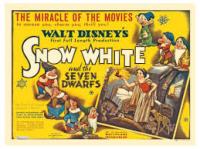 Since 2007, the UK Government has had a Minister for Intellectual Property. Or, to be accurate, it has had 7 ministers, each of whom has retained their position, on average, for about a year. The latest incumbent, Baroness Lucy Neville-Rolfe, was appointed earlier this month.
Since 2007, the UK Government has had a Minister for Intellectual Property. Or, to be accurate, it has had 7 ministers, each of whom has retained their position, on average, for about a year. The latest incumbent, Baroness Lucy Neville-Rolfe, was appointed earlier this month.
It sounds good that the Government is taking IP sufficiently seriously to have a minister-in-charge. But what does it mean in practice?
Clearly, the Government needs a responsible minister to steer legislation through Parliament. In practice, there need to be at least two ministers for the role, one in the House of Commons, and one in the House of Lords. Responsibility for steering the Intellectual Property Bill recently fell to Lord Younger in the House of Lords (the IP minister before Baroness Neville-Rolfe), and David (“Two-Brains”) Willetts in the House of Commons. Both have since lost their jobs as government ministers, but IP Draughts guesses that their performance on IP matters probably wasn’t the cause.
Steering IP legislation through Parliament doesn’t require the helmsman to have a formal title of IP Minister, as demonstrated by David Willetts’ performance of this task. So, what is the purpose of the named role?
Perhaps it is to coordinate Government policy in the field of IP? If that is the case, why is responsibility for IP policy split between the Department of Business, Innovation and Skills (where the IP minister is based), the Department for Culture (which is responsible for aspects of copyright policy) and the Department of Agriculture (which is responsible for plant breeders’ rights)?
Perhaps the IP minister is expected to be a champion for IP rights, and to make sure the Prime Minister “gets it”? But surely that has been the stated role of Mike Weatherley MP, the Prime Minister’s official adviser on IP?
It is not obvious that the Prime Minister needs an IP minister; he did very well to secure the life sciences division of the unified patent court for the UK, with no apparent involvement from an IP minister.
Perhaps the role is one “behind the scenes”, working within Government, and follows the mantra of Harry S Truman, that it is amazing what you can accomplish if you don’t care who gets the credit. If so, it would be good to know what the minister does, so that those of us who are involved in the IP world can provide information and support.
The late Alan Clark MP was a Government minister who never quite became a Cabinet Minister. He is famous for writing some of the most entertaining political diaries of the 20th century. He was also, by his own confession, something of a shit in his personal life, but so what: the same was true of Picasso, and that fact doesn’t affect the quality of his art.
Clark’s diaries amusingly describe the drudgery of a junior minister’s official life. In part, according to Clark, the job is a training for higher office, and a probationary period to see whether you are fit to climb further up the greasy pole. In part, the junior minister’s role is to take on all the boring, politically unimportant, but somehow necessary duties that his boss, the Secretary of State, does not wish to spend time on.
This is a cynical view of the lot of a junior minister, but it is the only one that IP Draughts has seen clearly expressed. Nothing in the unimpressive performance of the 7 IP ministers leads him to a different view. In fairness, it is too soon to condemn Baroness Neville-Rolfe as she has only just started in the role.
If the Prime Minister, David Cameron, can be viewed as Snow White – the fairest of them all – for securing the life sciences division for the UK (and, as a bonus, hugely annoying the European Parliament in the process), which roles do the 7 IP ministers fill? IP Draughts would like to suggest the following casting:
Happy – Baroness Lucy Neville-Rolfe, who has resigned from directorships with Tesco and other companies in order to focus on her new role as IP minister.
Grumpy – Viscount Younger of Leckie, who was recently sacked as IP minister. IP Draughts can’t feel too sorry for this heir to the Younger’s brewing fortunes and the hereditary title that goes with it.
Sleepy – Lord Marland, who came before Lord Younger, and rose and sank without trace.
Sneezy – Baroness Wilcox. Apart from being Chair of the National Consumer Council, her job as IP minister seems to be the most noteworthy role she has had, at least if her Wikipedia entry is accurate. If she dislikes the title Sneezy (given for no other reason than that it was vacant), perhaps she would prefer the name that Walt Disney was originally planning to give to one of the seven dwarfs but abandoned as too boring: Jumpy?
Doc – David Lammy – the closest this group has to an intellectual. Not that it takes much: an LLM from Harvard means that he has more than one degree. He is the only IP minister to come from the House of Commons; the rest have exercised their ministry from the Lords. He is probably the most dynamic of the bunch, but he wasn’t noticeable as IP minister.
Bashful – Baroness Morgan. She now has a more important role, and one to which she seems more suited in view of her career background, as Chief Executive of Breast Cancer Campaign, a leading UK charity.
Dopey – Lord Triesman, who lasted as IP minister for only a few months, before jumping ship to become Chairman of the (English) Football Association.
Part of the problem, in IP Draughts’ view, is defining what the role should be. There is probably more technical content for an IP minister to master than in many Government briefs, and it would be good to have a minister with some intellectual clout as well as political influence. In fact, the technical content makes IP Draughts wonder whether a purely political ministerial appointment is quite right. He recalls the President of the Board of Trade, an ancient office whose title Michael Heseltine revived when he was Secretary of State for Trade and Industry (now the role held by Vince Cable, as Secretary for Business, Innovation and Skills). Originally, the Board of Trade was a committee advising Government. To quote Wikipedia:
In the 19th century the board had an advisory function on economic activity in the UK and its empire. During the second half of the 19th century it also dealt with legislation for patents, designs and trade marks, company regulation, labour and factories, merchant shipping, agriculture, transport, power etc.
Instead of an IP minister, perhaps the Board of Trade should be revived, with one of its members responsible for leading on IP issues and briefing the Secretary of State and the Prime Minister. The selected individual would probably be a businessman or businesswoman with experience of IP. An advantage of this route is that they wouldn’t have to handle (and be suited for) the humdrum activities of a junior minister.
It is also important to bear in mind that much of the UK legislation in the field of IP comes from Europe. IP Draughts is not convinced that the UK Government is properly set up to negotiate European legislation. For example, when IP legislation is negotiated by the UK Government in Europe, it seems to be handled by officials from the Foreign Office, to whom interested parties such as IP professionals have no direct access, instead having to deal with, for example, people in the UK IPO who, in turn, brief the Foreign Office representatives. IP Draughts hopes he has got this right; the lack of transparency on this issue makes it difficult to be certain. IP Draughts would much prefer there to be a single Government department, probably BIS, handling all legislative developments in the IP field in both the UK and Europe.
Therefore, in an ideal world, he would like to see the IP minister being a senior level Government appointment, perhaps with a title such as:
President of the Board of Trade and Secretary of State for Europe




Reblogged this on IP Draughts and commented:
IP Draughts stumbled across another old blog post today, this time on the role of IP Minister. With hindsight, he would be more positive about Baroness Neville-Rolfe, who did a good job of steering the threats legislation through Parliament, during IP Draughts’ time as chair of the Law Society IP Law Committee.
If the IP ministers had genuine business experience I would be more persuaded. Several of the above can claim such experience, but it only looks impressive in comparison with the typical politician who has no experience other than being a politician. For exampe, the current incumbent was a non-exec director of Tesco, which of itself is good, but she was really a civil servant who moved into a second career as a non-exec. I think of business experience as something like starting a technology company or being a mid-level executive in an IP-rich enterprise.
You could so easily have made this a supermarket trip from Sainsbury to Tesco, as Lord Sainsbury was a more effective IP man in government. The trend to use Lords seems to be because of business experience so someone has perhaps decided the IP world is not a political training ground for junior ministers. Since the role varies with the tide of issues, it is maybe appropriate that the minister does too. Of course a major part of the role is to figurehead the IPO Cracking Ideas competition and no minister can survive that ordeal more than once